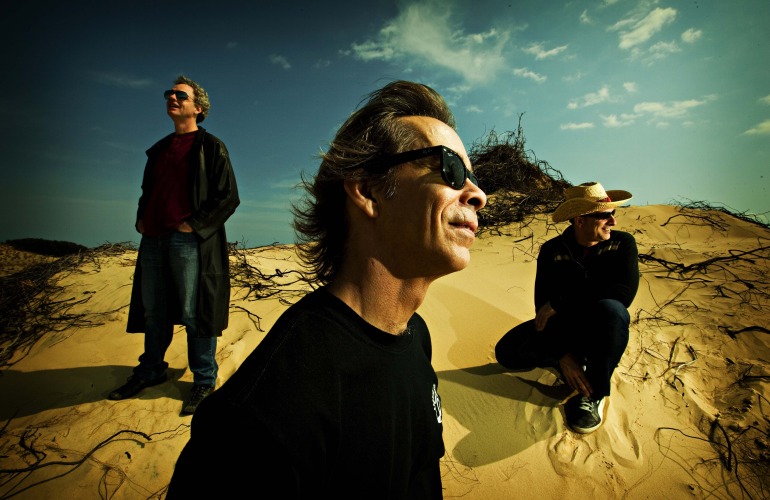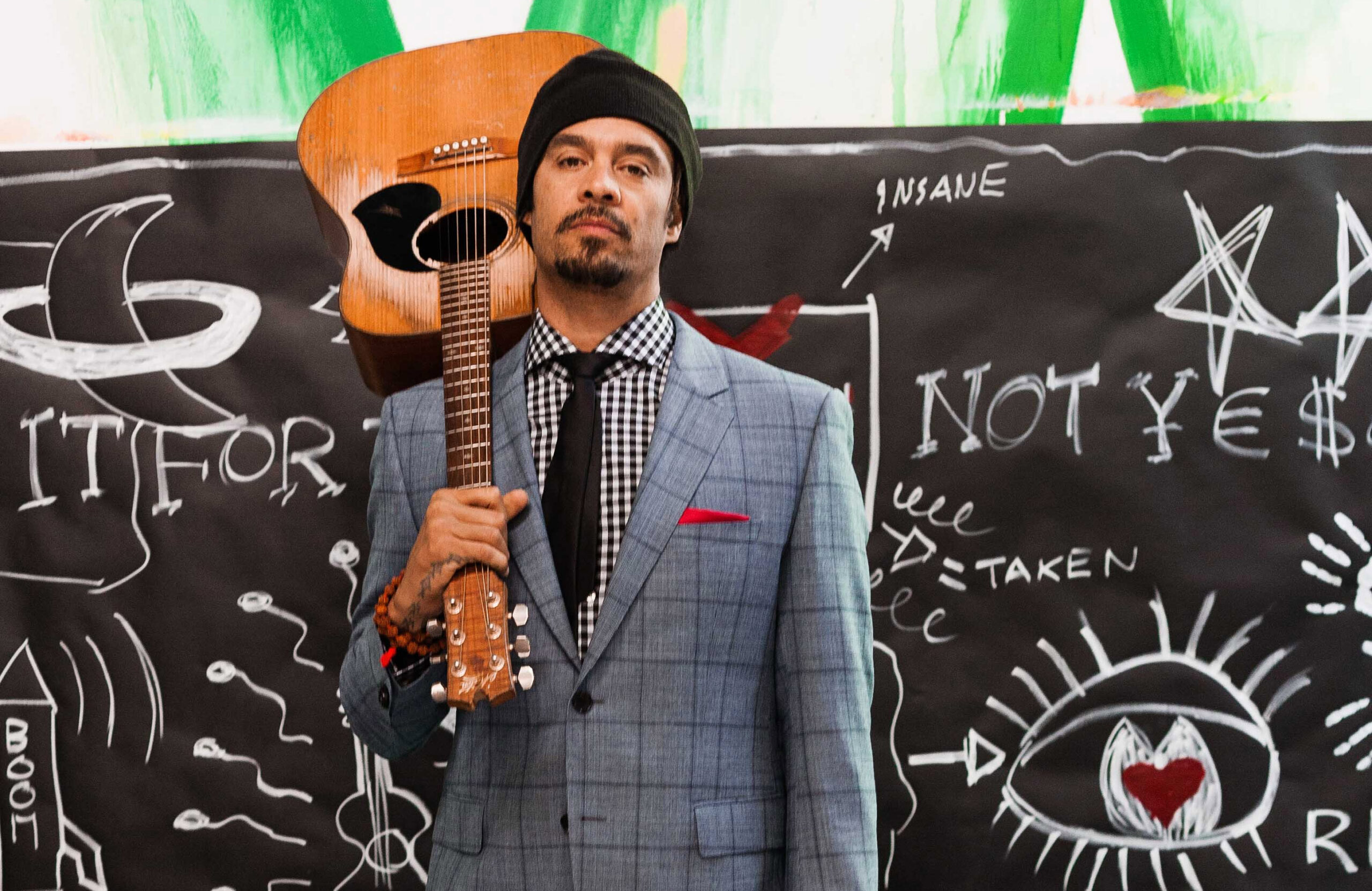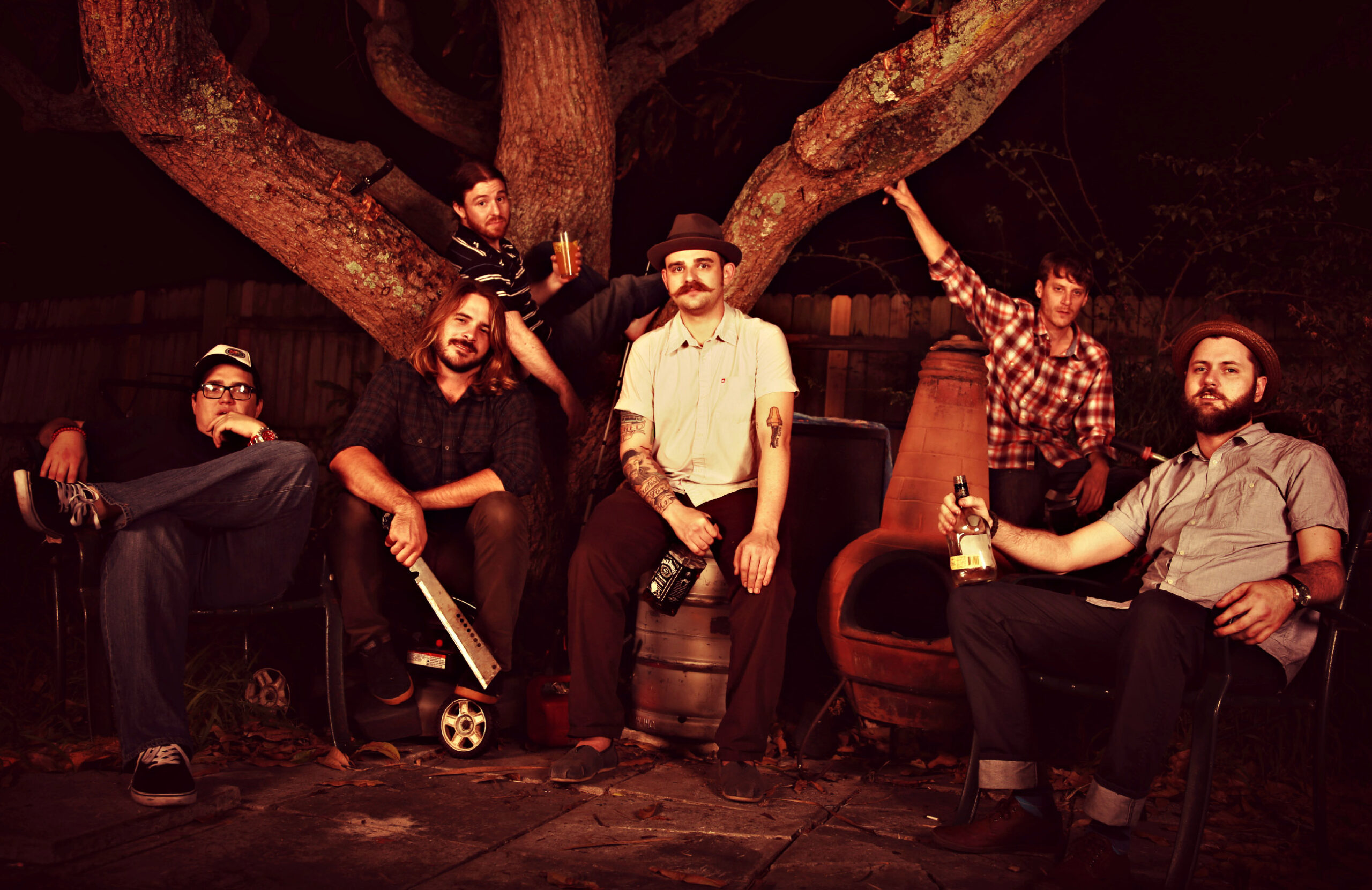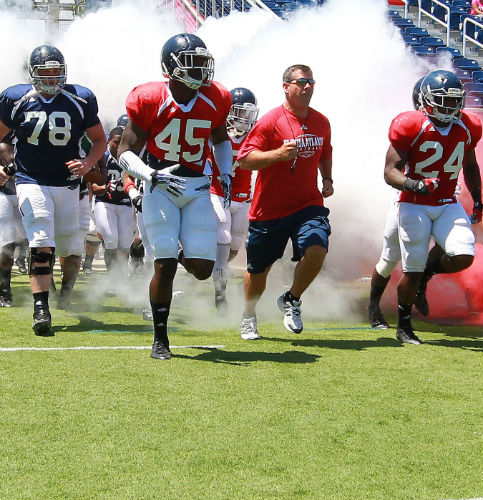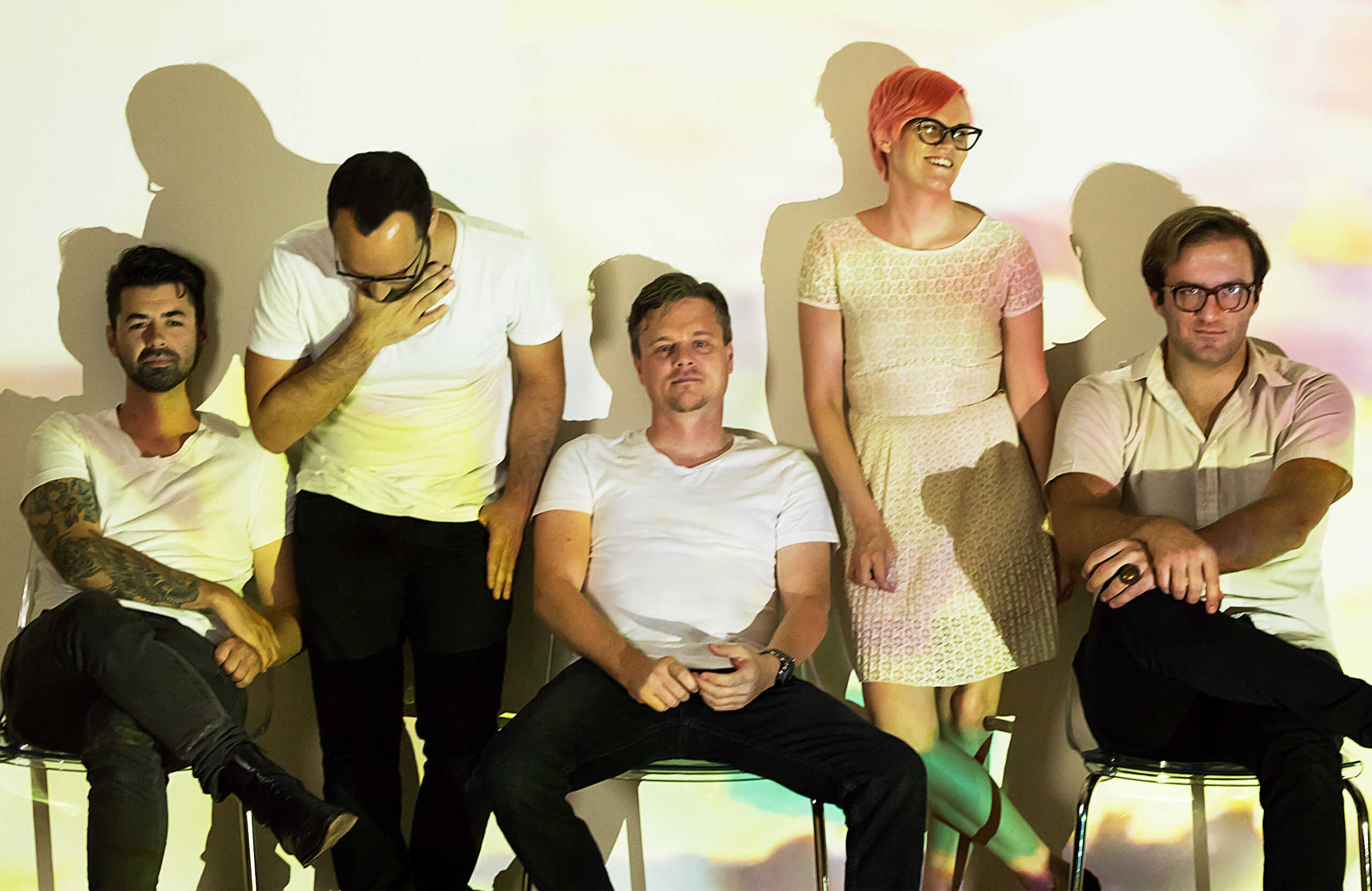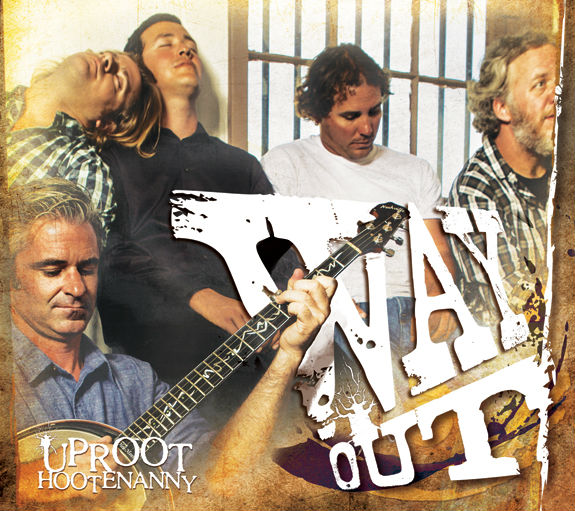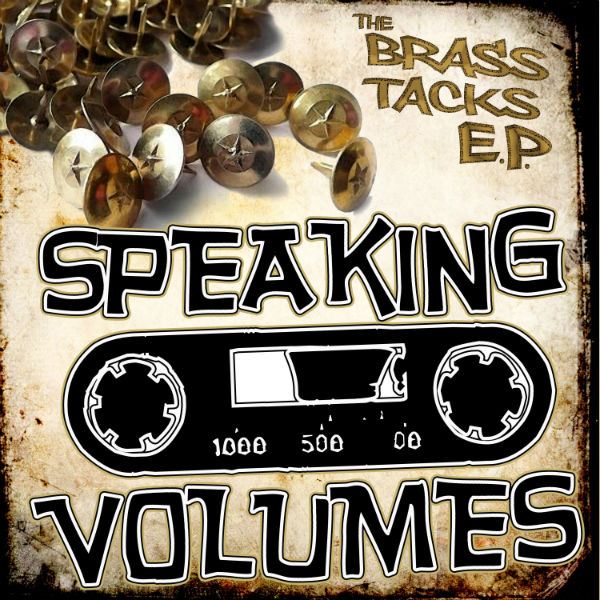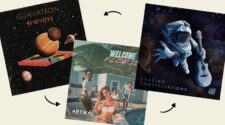When many of us think of rock stars, we think of fame, touring, girls, substances…you know the rest. For Tim Reynolds, it’s all about the music. To take away the fame, well he’d probably prefer it that way. If you granted one wish to the soft spoken musician, it would be a few extra lifetimes to perfect his craft. A solo artist, founder of the band TR3, and lead guitar player for the Dave Matthews Band – Tim has been around the block. Thanks for taking the time to chat Mr. Reynolds. It’s certainly a conversation we won’t forget.
When did you first pick up a guitar and why?
Tim: Being a young boy in the 60’s, guitar music was a big thing. Beatles, Elvis and all that. The first time I picked up a guitar I got in big trouble because it was my dad’s acoustic. I must have put it out of tune. You know, I didn’t know what I was doing. I got in big trouble (laughs)…an ass woopin’.
If you had to play at the same venue once per week for the rest of your life, where would it be?
Tim: Just because I’m lazy, it would be somewhere local. I’m sure it wouldn’t be too much money, but it would be easy. So somewhere in Outer Banks, North Carolina.
You just released a new album entitled Like Some Kind of Alien Invasion. What can your fans and listeners expect?
Tim: It’s a rockin’ album but it has a lot of different flavors to it, which is pretty indicative of what we like to do. It’s got some acoustic stuff, but mostly electric. It’s got some rock tunes, a little bit of metal, but mostly rock.
Who were your top musical influences growing up? Is there someone in particular who has influenced you the most?
Tim: Aw man there’s so many because it’s so long of a time. Led Zeppelin, Jimi Hendrix of course and in more modern times I’ve really loved Radiohead, Nine Inch Nails, Deftones – it just keeps evolving. I enjoy new music and I’m always curious about what’s going on.
Myself along with most others would have trouble categorizing your style of playing. Do you enjoy the fact that you can’t exactly be categorized? How would you describe your style of playing?
Tim: Yeah, I do. It’s almost schizophrenic, but that kind of gives it a negative connotation. I’m wide open and interested in a lot of things. I wish I had several lifetimes to learn to play the guitar really well instead of always hopping around musically. But I also figure that if I’m going to have one life it’s good to hop around. I’d love to spend a life playing classical, another life playing jazz, and another life playing blues. Because all the styles are so deep. Oh and another life of Brazilian Jazz because that’s a whole nother’ world of rhythmical awesomeness.
On the topic of having several lifetimes to perfect your craft, if you could be reincarnated as any previous musician, who would it be?
Tim: Ravi Shankar. Because he’s just world class and played mystical music.
When you get into the zone on stage, your eyes will sometimes rolls back, and it’s almost as if you’re in a whole other place. Do you feel as if you’re a vehicle or medium for the music to come through and it’s coming from somewhere else?
Tim: Yeah it’s almost as if you become nothing and dissolve into the music. And that’s what you live for. You’re kind of in the zone a lot but once in a while you’re totally in the zone. You can set up the situation to get there but you never know when it’s going to happen. It’s kind of like magic. Not like the sleight of hand magic, but more old school magic where it was all up to the right conditions – it had to be at midnight, you know, a lot of crazy things like that. But that’s kind of what makes music magic, because it’s in the moment. Sometimes you don’t realize until later when you look back and say ‘Wow that was really cool.’
How did you first meet Dave Matthews?
Tim: I met him at a bar in Charlottesville, Virginia. He was a bartender and I would play there every Monday night.
Compared to the massiveness of a DMB concert, does playing solo, or with TR3 provide some sort of reprieve for you?
Tim: Kind of, it’s also with your own personal connection with your own music connecting with an audience. It’s such an intimate personal thing in a way and having another forum with different audiences makes each night unique.
When building a song from the ground up, how does the creative process start for you and the band?
Tim: It’s kind of a variety of ways that it comes. Something you’ll get inspiration and the whole song will come out. Other times you start with an idea and it takes a long time to make it work the way you want to. There’s a lot of studio projects we spend like two years on, since I’m on the road all the time it’s kind of in-and-out in-and-out. That really works well for me to be able to listen and mull over something for a long time. It makes it sit well and becomes more satisfying. Most projects I’ve worked on get done in about a week or so, and that’s great too, to just capture that moment. But it’s really also cool to capture a lot of moments over time and then you get all these performances that may have happened in a week but have a lot of time to gather everything. There are endless ways to mix songs, so it’s great to be able to listen to things over a long period of time to help it settle in. Sometimes when you have an inspired moment, it’s hard to repeat that. Especially if you’re having a group jam, you’ll sometimes say ‘I don’t know if we can even do that again.’ But you try and that’s how a lot of music is written. In the end it usually comes down to gut (laughs).
Do you have any pre-show rituals?
Tim: I usually like to take a walk outside. That’s usually about it. Make up a setlist, go for a walk, have some coffee – pretty simple really.
When you’re on stage for a DMB show, everyone knows who you are. But other times you’ll sneak into a bar after a show for a solo set. Do you enjoy playing in front of a crowd that isn’t as knowledgeable of your music and doesn’t have any preconceived notions?
Tim: Sure because then you kind of educate them in the moment.
The music industry as a whole has changed a great deal in the last 10 years—-the concept of an artist putting out an album to be consumed in its entirety has been replaced by single song purchase in iTunes. What do you think of this trend and how has it impacted you and the way you approach your music?
Tim: It hasn’t really impacted me and my approach to music itself. Obviously the business of music has changed, but I usually let somebody else take care of business because I’m really terrible at that. It has changed a lot, but there’s always a change and then a backlash, change then a backlash, almost like politics. But there has been a resurgence in LP sales, so I guess that’s cool. Technology always changes things but after a while when it wears off it kind of resets and equalizes. I wouldn’t say back to normal because everything evolves one way or another. What I like to do is keep playing music and whatever happens after that will be left up to the other aspects of life.
On that same note, it’s extremely easy for people to access intimate performances on YouTube. But there’s the other side where they might get a sneak peak of a song or performance that a band might not want out there quite yet. Do you see this as an advantage as a musician?
Tim: I think so, but that kind of thing is good and bad too. I can’t really qualify what’s good and bad about it but it makes it easier to get everything and kind of relativizes everything. It’s almost like the French Revolution – ‘Well we haven’t really figured out what that was about yet.’ YouTube has made people really famous, like Justin Bieber and all these other people. You don’t know if that’s (pauses) you never really know. But I’m always so self critical that I can’t watch myself on YouTube. But you can’t really dwell on it, just have to keep playing and hope for the best.
Part of the whole self evolving thing for really any profession is being self critical and not being satisfied. Do you think there’s a point that you’ll get to where you say ‘I’ve hit it’ or ‘I’m there?’
Tim: No, that’s a really terrible place. I mean you have moments of that when you’re playing music, you’re there for that moment. But then there’s the future where you have to keep reaching for it. The place that you think is ‘there’ is kind of a moving target, you know? Like what is ‘that?’ You’re recognized or know you’re playing really well? It’s easy to get caught up in like – well not easy because I kind of dread it. You know, the whole being famous and all that, I just want to play music.
Tim Reynolds and TR3 will be playing at The Funky Biscuit this Thursday night. Visit funkybiscuit.com for details.
Click HERE to purchase their new album
